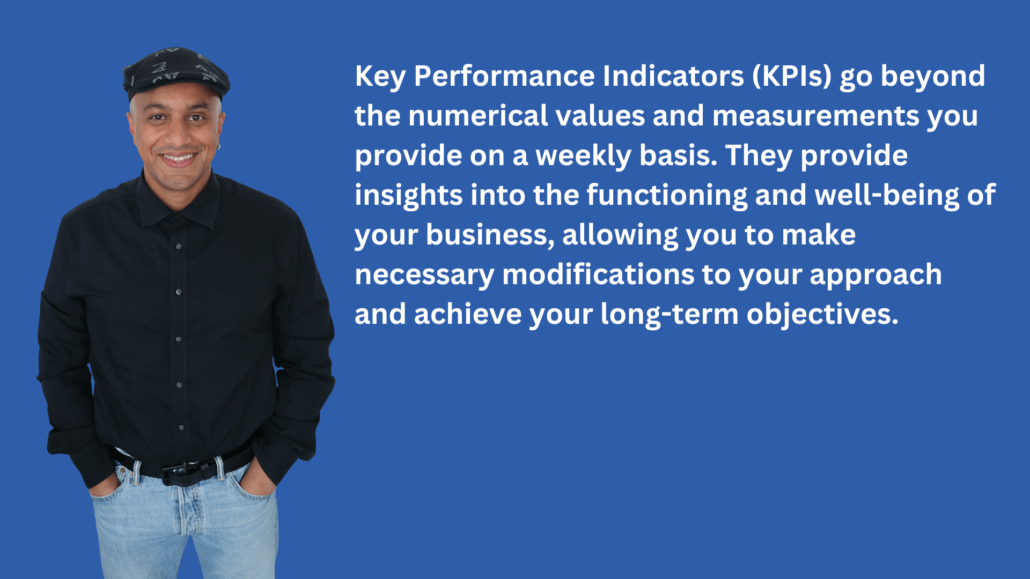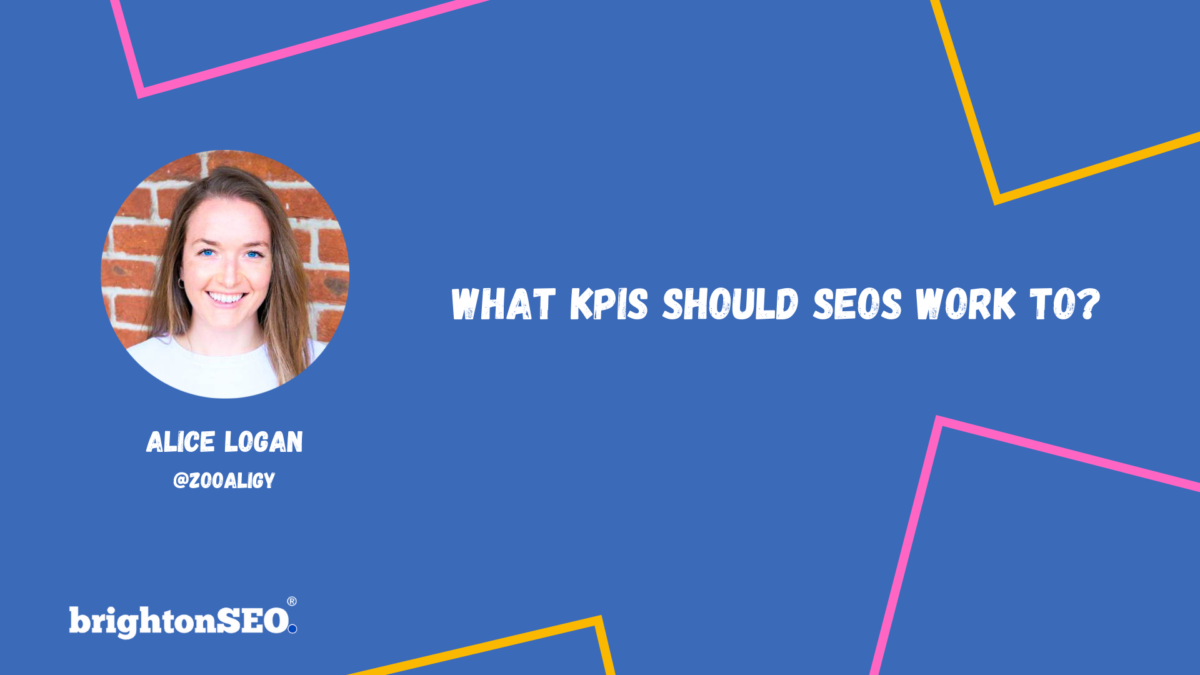In today’s digital age, search engine optimisation (SEO) is an essential component of any business strategy. SEO helps to improve the visibility and ranking of a website in search engine results pages (SERPs), ultimately driving more traffic and potential buyers.
However, optimising your website for search engines can be a daunting task, especially if you don’t know where to start. This is where key performance indicators (KPIs) come in handy.
So allow me to explain what KPIs are and why they are important, and we’ll explore some of the top SEO KPIs you should be tracking.
What are Key Performance Indicators (KPIs)?
KPIs are metrics that are used to measure the performance of a specific aspect of a business. KPIs are typically numerical and can be used to track progress over time. They are usually in the form of charts, graphs, and statistics.
KPIs can be applied to any aspect of a business, from finance and marketing to customer service and production. KPIs can be used to measure a wide range of metrics, such as revenue, traffic, conversion rates, engagement rates, and more. KPIs are often used by management teams to highlight effective areas of their company’s performance and take action when areas need improvement.

Why are KPIs important?
KPIs are important for a number of reasons.
- Firstly, they provide insights into the functioning and well-being of your business, allowing you to make necessary modifications to your approach and achieve your long-term objectives. By tracking KPIs, business owners can identify areas that need improvement and make data-driven decisions to optimise performance.
- Secondly, KPIs can help to align business goals with specific metrics. This ensures that everyone in the organisation is working towards the same objectives, which can improve communication and teamwork.
- Finally, KPIs can help to measure the return on investment (ROI) of specific business strategies. By tracking KPIs, businesses can determine which strategies are working and which ones need to be adjusted.
Top SEO KPIs you should be tracking
When it comes to SEO, there are a number of KPIs that are important to track. These KPIs can help you to understand how your website is performing in terms of visibility, traffic, engagement, and conversion. Below, we’ll explore the top SEO KPIs you should be tracking.
Organic traffic
Organic traffic refers to the number of visitors who arrive at your website via search engine results pages (SERPs). This KPI is important because it measures how visible your website is to search engine users. If your organic traffic is high, it means that your website is ranking well for relevant search terms, which can drive more leads and sales. To track organic traffic, you can use tools like Google Analytics, which provides insights into the number of visitors to your website and the sources of that traffic.
Keyword rankings
Keyword rankings refer to the position of your website in search engine results pages (SERPs) for specific keywords. This KPI is important because it measures how well your website is optimized for specific search terms. If your website is ranking well for relevant keywords, it can drive more organic traffic to your website. To track keyword rankings, you can use tools like SEMrush or Ahrefs, which provide insights into the position of your website in search engine results pages (SERPs) for specific keywords.
Click-through rate (CTR)
Click-through rate (CTR) refers to the percentage of search engine users who click on your website’s link in search engine results pages (SERPs). This KPI is important because it measures how engaging your website’s title and meta description are to search engine users. If your CTR is low, it may indicate that your website’s title and meta description need to be improved to make them more compelling. To track CTR, you can use tools like Google Search Console, which provides insights into the number of clicks and impressions your website receives from search engine results pages (SERPs).
Bounce rate
Traditionally ‘bounce rate’ is described as the percentage of visitors who leave your website after viewing only one page. Since Google released Google Analytics 4 (GA4) bounce rate has a new definition which I like a lot more: the percentage of sessions that were not considered engaged. An engaged session in GA4 is a session that meets one or more of the following criteria: lasting longer than 10 seconds, having a conversion event, or containing at least 2 pageviews or screenviews.
This KPI is important because it measures how engaging your website is to visitors. If your bounce rate is high, it may indicate that your website’s content is not engaging enough to keep visitors interested. To track bounce rate, you can use tools like Google Analytics, which provides insights into the number of visitors who leave your website after viewing only one page.
Conversion rate
Conversion rate refers to the percentage of visitors who take a desired action on your website, such as making a purchase, filling out a form, or subscribing to a newsletter. This KPI is important because it measures how effective your website is at converting visitors into customers or leads. If your conversion rate is low, it may indicate that your website’s design or content needs to be improved to make it more persuasive. To track conversion rates, you can use tools like Google Analytics, which provides insights into the number of conversions your website receives.
Backlinks
Backlinks refer to links from other websites that point to your website. This KPI is important because it measures the authority and relevance of your website in the eyes of search engines. If your website has high-quality backlinks from authoritative websites, it can help to improve your website’s ranking in search engine results pages (SERPs). To track backlinks, you can use tools like Ahrefs or Moz, which provide insights into the number and quality of backlinks pointing to your website.
Time on site
Time on site refers to the amount of time visitors spend on your website. This KPI is important because it measures how engaging your website’s content is to visitors. If visitors are spending a long time on your website, it may indicate that your website’s content is interesting and engaging. To track time on site, you can use tools like Google Analytics, which provides insights into the average time visitors spend on your website.
Pages per session
Pages per session refer to the average number of pages visitors view during a single visit to your website. This KPI is important because it measures how engaging your website’s content is to visitors. If visitors are viewing multiple pages during a single visit, it may indicate that your website’s content is interesting and engaging. To track pages per session, you can use tools like Google Analytics, which provides insights into the average number of pages visitors view during a single visit.
Conclusion
Tracking KPIs is an essential part of any SEO strategy. By tracking the right KPIs, you can gain valuable insights into how your website is performing in search engine results pages (SERPs), and identify areas that need improvement. The KPIs listed above are some of the most important to track for SEO, but it’s important to remember that different businesses may have different KPIs depending on their goals and objectives.
By regularly tracking KPIs and using them to inform your SEO strategy, you can improve your website’s organic visibility, traffic, engagement, and conversions, ultimately driving more leads and sales for your business.
Who is Alice Logan
Alice Logan creates SEO strategies for b2c and b2b clients and is currently leading on website migrations at ROAST. She launched her career client-side in a 360 communications role before gaining two years as an SEO generalist agency-side. This all helped grow that ‘bigger picture thinking’ part of her brain, which she applies to her current role at ROAST.
About BrightonSEO
BrightonSEO – is a major search marketing event in the UK. One of our favourite events of the year, This is a superb conference for search marketing professionals, novice or expert. BrightonSEO is a chance to learn from some of the best minds in search, and then rub shoulders with them at one of the friendliest, and largest, gatherings of Digital Marketers in Europe.


Leave a Reply